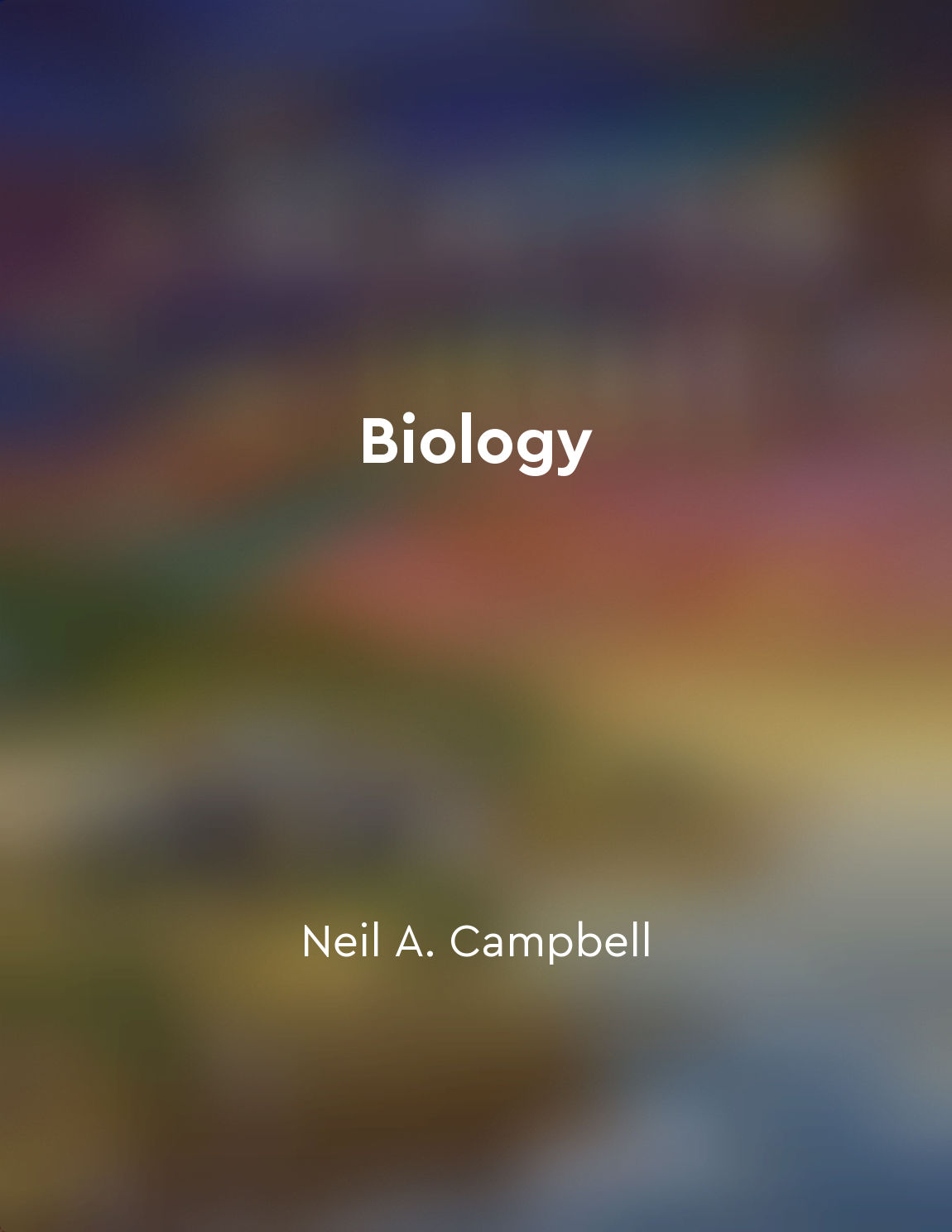Basic chemistry of life from "summary" of Biology by Neil A. Campbell
The chemistry of life is based on a few key principles that govern the behavior of molecules within living organisms. These principles can be understood by examining the structure and function of four types of biological molecules: carbohydrates, lipids, proteins, and nucleic acids. Carbohydrates are the primary source of energy for most living organisms. They are made up of simple sugars, such as glucose, which can be broken down through a process called cellular respiration to release energy for the cell to use. Carbohydrates also play a structural role in cells, forming part of the cell wall in plants and providing support and protection. Lipids are another important class of biological molecules that serve a variety of functions in living organisms. They include fats, oils, and waxes, which are used for energy storage and insulation. Lipids also make up the cell membrane, which controls what substances can enter and leave the cell, and act as signaling molecules that help cells communicate with one another. Proteins are the workhorses of the cell, performing a wide range of functions that are essential for life. They are made up of amino acids, which are linked together in a specific sequence to form a unique three-dimensional structure. Proteins can act as enzymes, speeding up chemical reactions in the cell, or as antibodies, helping the immune system to fight off infections. Nucleic acids, such as DNA and RNA, are responsible for storing and transmitting genetic information. DNA contains the instructions for building and maintaining an organism, while RNA helps to translate these instructions into proteins. Nucleic acids are made up of nucleotides, which consist of a sugar, a phosphate group, and a nitrogenous base. By understanding the basic chemistry of life, we can begin to unravel the complexity of living organisms and appreciate the intricate processes that allow them to function. Each of these biological molecules plays a vital role in maintaining life, and by studying their structure and function, we can gain insight into the fundamental principles that govern all living things.Similar Posts
Reproductive health is essential for the wellbeing of individuals
Reproductive health plays a crucial role in ensuring the overall wellbeing of individuals. It encompasses a range of aspects th...
Emotional wellbeing is connected to physical health
Emotional wellbeing and physical health are closely intertwined, forming a delicate balance that impacts our overall state of b...
Natural selection favors advantageous traits
Natural selection, a key mechanism driving evolution, operates by favoring individuals with advantageous traits that increase t...
Sharing and protecting research findings
As scientists, our primary goal is to advance knowledge by sharing and protecting our research findings. This delicate balance ...

